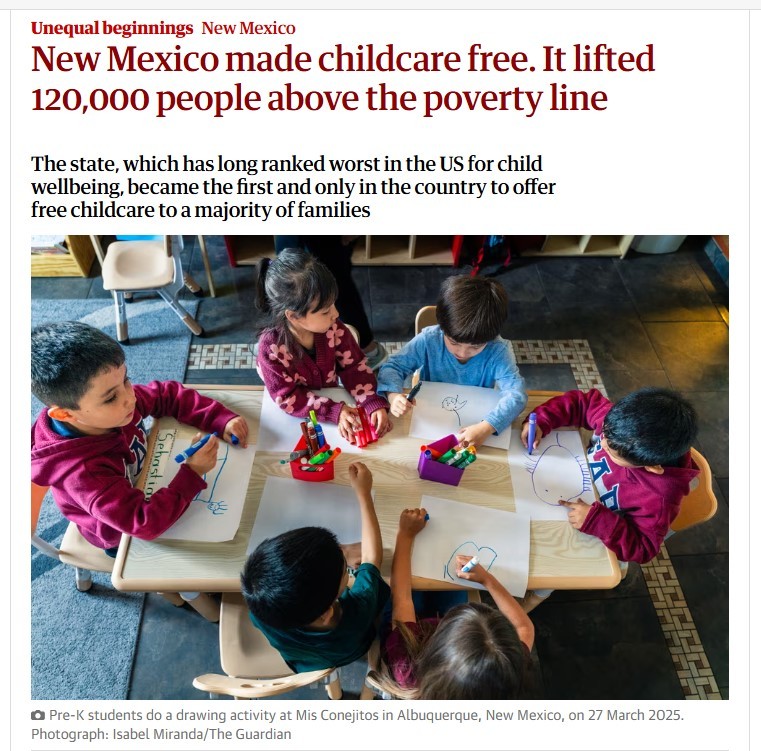
New Mexico has achieved a remarkable milestone as the first U.S. state to offer free childcare to most families, resulting in 120,000 residents rising above the poverty line. The groundbreaking initiative, launched three years ago, has transformed lives across the state while addressing critical issues of child wellbeing and economic inequality.
The program provides free childcare to families earning up to 400% of the federal poverty level—approximately $124,000 for a family of four. In a state where childcare costs for two children could previously consume up to 80% of a family's income, this policy change has created new opportunities for working parents and students.
Lisset Sanchez, a nursing student and mother of five in Las Cruces, experienced the program's impact firsthand. "We are a one-income household," she said. "Having free childcare did help tremendously." The program allowed her to continue her education while managing her growing family's needs.
The initiative extends beyond just helping families—it has also improved conditions for childcare workers. The state raised wages and became the first to base subsidy rates on actual care costs. As a result, the poverty rate among childcare providers dropped from 27.4% in 2020 to 16% in 2024.
New Mexico's innovative funding approach includes the Early Childhood Trust Fund, which grew from $300 million in 2020 to over $9 billion by late 2024, largely due to oil and gas revenues. Voters also approved directing 1.25% of the state's Land Grant Permanent Fund to early childhood programs.
The results have been striking. New Mexico's supplemental poverty rate—which accounts for social support programs—fell from 17.1% to 10.9%, representing one of the largest improvements nationwide.
Elizabeth Groginsky, cabinet secretary of New Mexico's early childhood education department, emphasized the program's long-term value: "This is a big investment that we know is going to pay off."
Recent legislative actions have further strengthened the initiative, with lawmakers approving a 21.6% increase in education funding, including early childhood programs. The state is also working to raise the minimum wage for childcare workers to $18 per hour and create career advancement opportunities.
While experts note that lasting change takes time, early indicators suggest New Mexico's bold approach to universal childcare is creating positive generational impact, offering a potential model for other states considering similar programs.